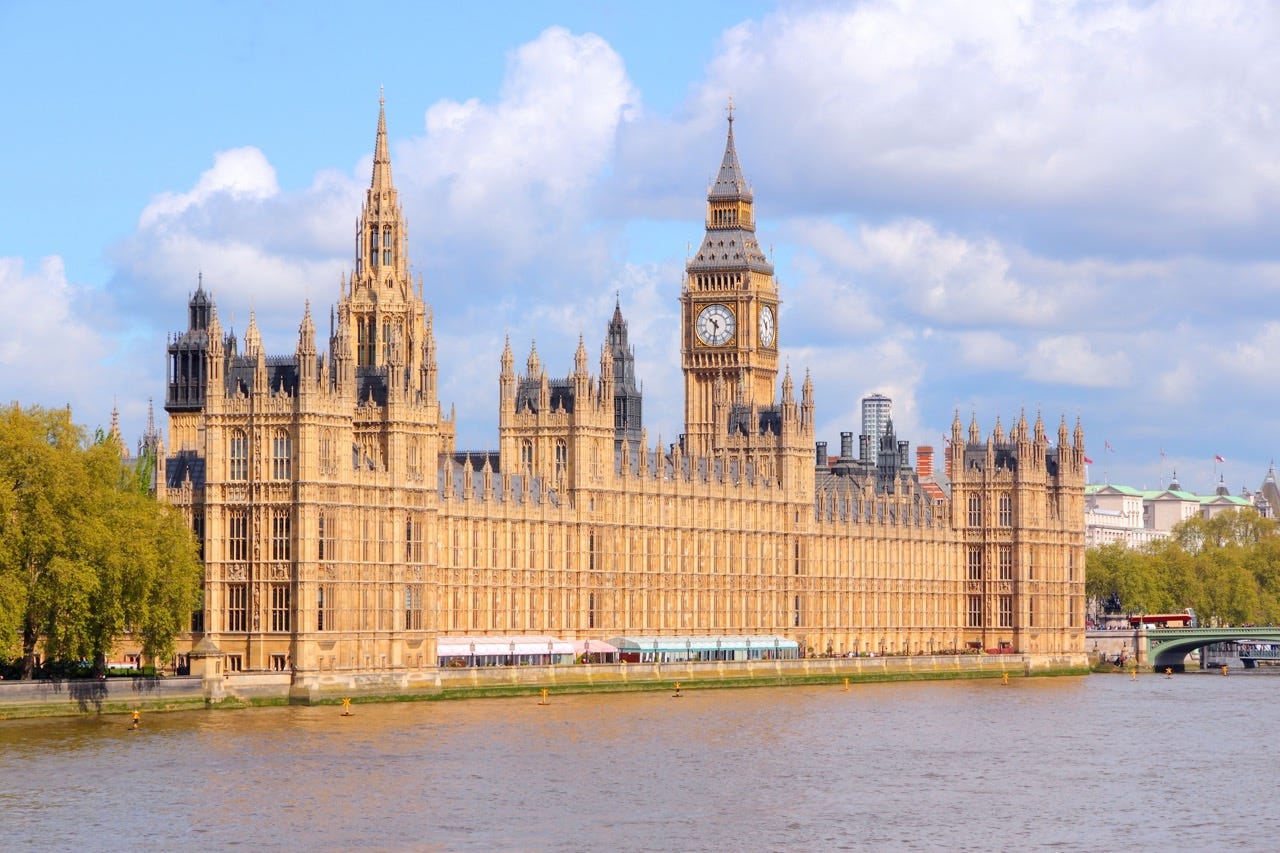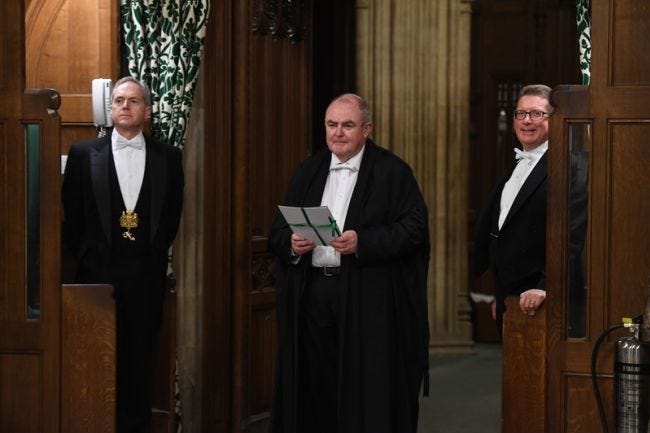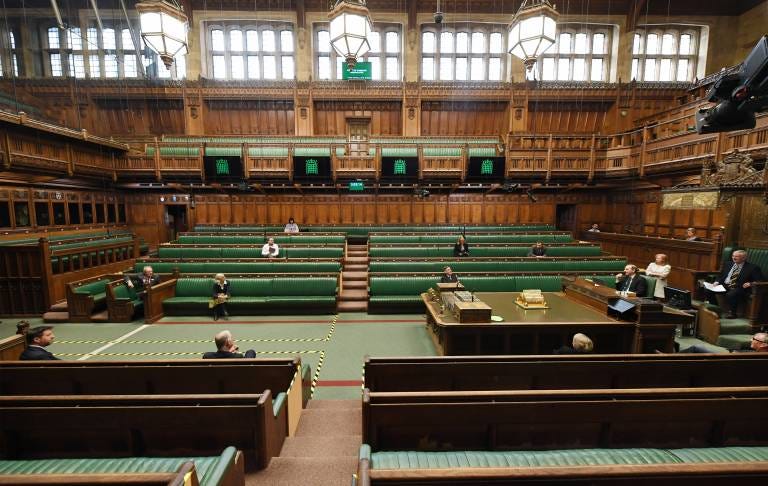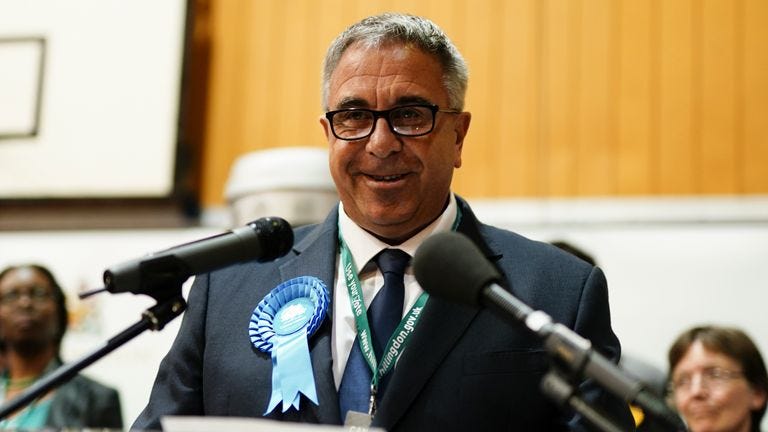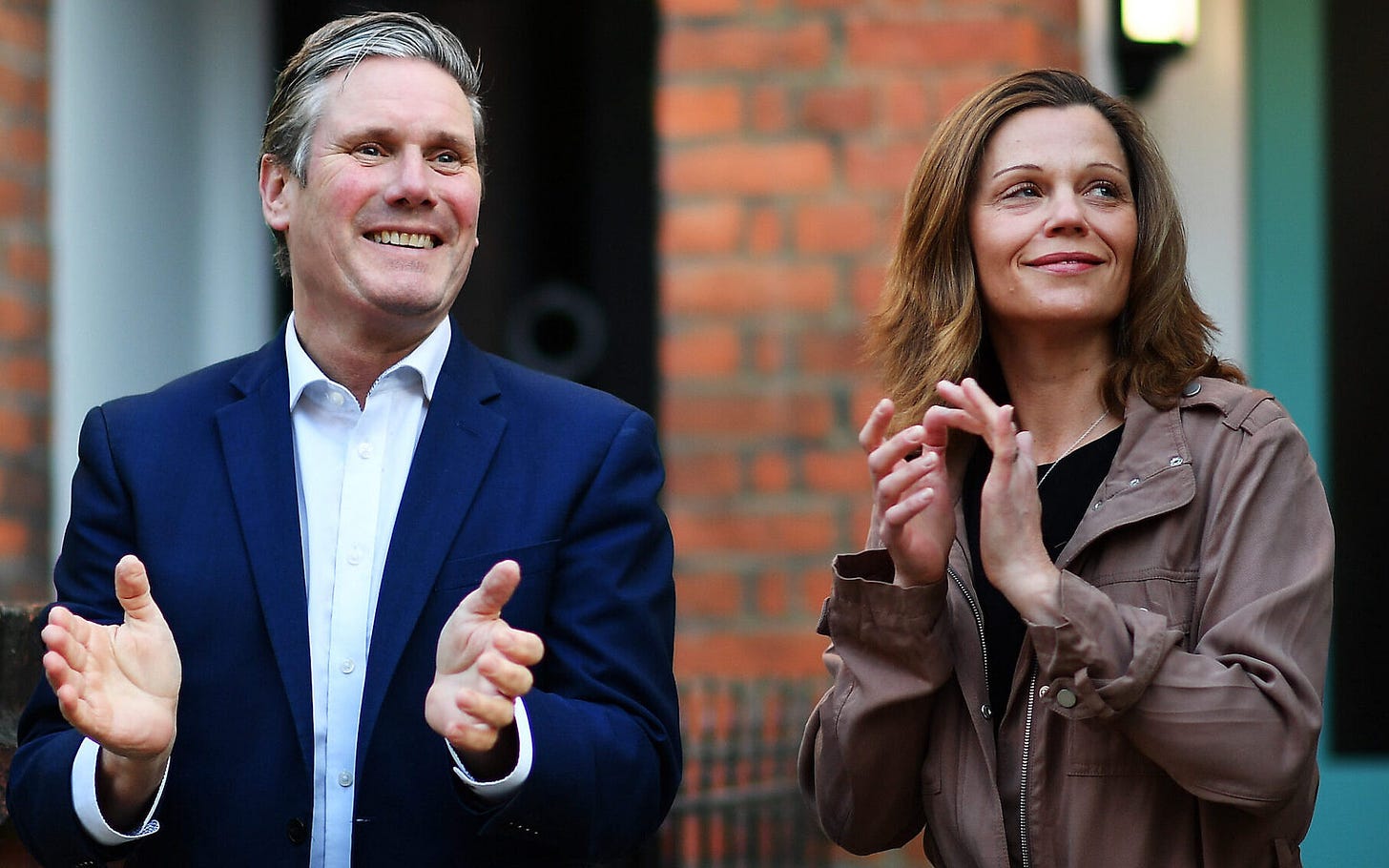End of term for the Commons: sigh of relief
On Thursday MPs dispersed for the summer adjournment—the Lords must wait another week—so what will be on their minds as they go home?
The Palace of Westminster is very difficult to cool. It is, after all, a building erected in the high Victorian era, when technology was rather more basic than it is now (though for its time it was advanced and intricate). The chamber, rebuilt after some Luftwaffe remodelling in 1941, has “modern” air conditioning, which helps, but it can still become stuffy on hot days. Committee rooms, especially if very crowded, can grow overheated and on the worst days the air seems almost like a weight on you. One of Speaker Bercow’s radical innovations was to absolve male MPs from wearing ties and, latterly, jackets in very warm weather, but the current incumbent takes a more formal view and indicated that as of last autumn, jackets should we worn and ties would be very much welcomed. In legislative committees, the permission of the chair must be sought to remove a jacket; I remember one particularly dyspeptic incumbent reminding me of this rule, eyeing the members sourly and adding “and I shall not grant it”.
I say all of this not merely for local colour but because it matters. The last week or two before the House of Commons adjourns for the summer can be scratchy and bad-tempered: everyone is tired, attention spans are shrinking and thoughts are turning to a brief stint of respite. But the business of the House grinds on, sometimes in a fraught way, and the temperature often climbs, and all of these factors, admixed, more in the old days, with the regular and generous consumption of alcohol at the daunting range of summer parties, can produce an atmosphere which is positively poisonous, or else on a hair trigger to turn nasty.
The past week had all that potential. There were some very hot days, the two houses were in disagreement over the Illegal Migration Bill—there was a bit of what is known as ‘ping pong’, as the Commons considered Lords amendments, then the Lords considered Commons amendments, then the Commons considered more Lords amendments and the Lords considered and finally agreed to Commons amendments—and the week was concluded by three by-elections, two of which the government lost badly, and one of which it retained to some surprise. In fact, I have known worse last weeks of term: more vituperative, more partisan, more gladiatorial. But there was definitely a general feeling of exhaustion, of Members and staff having hoarded and then spent their last reserves of energy. The electoral contests meant that the usual unpleasantries had to be maintained all the way to Thursday, but as far as I’m aware nothing boiled over too much, and Members will now have left SW1 for their various destinations.
There is an added layer of fatigue because we all know that a general election is coming some time next year. The most that the government has indicated is that it could be in October, which in recent history is quite late in the year; the major decision is whether to dissolve Parliament before or after the 2024 summer recess. My instincts tell me it will be after, as the last session of the Parliament will only begin with the King’s Speech on 7 November this year; to pull up stumps in June or even July which truncate the session considerably, though it may be there is not much legislation to be considered anyway by that stage. Yet, for many reasons, the last election seems a lifetime ago. Boris Johnson was newly installed in Downing Street, Brexit was on the verge of “getting done” and the word “Covid” was merely a misspelling of a crow-like bird. The appellation may already be in use for an early one, but it has certainly felt at times like “the Long Parliament”.
The House of Commons will resume business on 4 September, which really is not very far away. The days of seemingly endless summer adjournments into which I arrived as a young clerk in 2005 are now comprehensively dead, principally because of the insistence on having a short and frustratingly unproductive sitting period, usually a fortnight, at the beginning of September before there is a three-week break to accommodate the main parties’ annual conferences. The two big parties no longer even have a jaunt to a miserable British seaside resort, with the Conservatives assembling in Manchester and Labour in Liverpool, but the Liberal Democrats maintain the old ways and will congregate in Bournemouth. Still, Members can catch their breath, identify the faces of their loved ones and try to recharge their batteries.
What will they be brooding on over the summer? I’ve tried to distill a few issues from the past weeks and present some themes which will, or should, occupy their thoughts.
The Conservative Party took a terrible drubbing in the by-elections, which indicates that the climb to anything approaching victory at the general election remains very steep. But it could have been worse. Holding Boris Johnson’s old seat of Uxbridge and South Ruislip, even if only 495 votes, and even if the decisive factor was the local unpopularity of the Ultra Low Emission Zone (ULEZ) and its impending extension to all of Greater London, was some salvation, and, as any political veteran will tell you, a win is a win. How long Steve Tuckwell’s parliamentary career will be is anyone’s guess; though it is worth noting that the constituency will be reshaped as Hillingdon and Uxbridge thanks to the Boundary Commission review, so it will not be a like-for-like comparison.
The Uxbridge result shows that there are still Conservative voters out there, and that Sir Keir Starmer and the Labour Party have still not captured the imagination of the electorate in the way that Sir Tony Blair and New Labour had by 1996/97. But the Tories need to regard this as pretty tepid comfort, as the two losses, in Selby and Ainsty (to Labour) and Somerton and Frome (to the Liberal Democrats) were overturning very healthy Conservative majorities, and will have rattled some MPs who had not thought that 2024 would be a difficult fight for them.
The other issue which should preoccupy Conservatives is unity. The past six or eight weeks (at least) have been fractious and there has been too much backbiting and sniping, over Boris Johnson’s condemnation by the House of Commons Committee of Privileges, over the severity of the “culture wars” and “wokeness”, over the importance which should be attached to climate change and environmental targets and over the leadership of the prime minister, Rishi Sunak, itself. It is a cast-iron law of politics that divided parties are not rewarded by the voters, and the perception of internal divisions has already affected the Conservatives’ support according to some polls. Sunak alone cannot impose discipline on the party—very few leaders can—so it must be MPs who collectively decide that they must pull together if there is to be any hope of victory.
The Labour Party will go into the summer adjournment with quiet satisfaction, and that’s justified. Snatching Selby and Ainsty with the 25-year-old Keir Mather, now the Baby of the House, was an impressive achievement, and, apart from anything else, marks the election of our first Member of Parliament born after the New Labour landslide of 1997. Someone should at least write down the fact that in Somerton and Frome the Labour vote fell sharply (by more than 10 per cent) and their candidate came in fifth, but they had no chance of winning the seat and most electors will have chosen accordingly. The party has a 17-point lead over the Conservatives nationally, and beats the government comfortably on a number of issues such as being “in touch with ordinary people”, economic competence and efficiency in public spending.
The opposition must give some consideration to the fact that Starmer’s personal ratings continue to be modest at best. A poll of voters in the Red Wall taken at the end of May put his approval at a flaccid +1 per cent (although the prime minister fared worse at -7 per cent); figures issued this month showed that, while he is well ahead of Sunak, Starmer was viewed favourably by only 32 per cent of respondents, but unfavourably by 39 per cent. The party has limited scope here: clearly they cannot (and would not want to) replace Starmer, and it is hard to imagine any other candidate on the Labour benches who would represent a significant improvement. Starmer is who he is, and, despite his eminent career as a lawyer and advocate, he is a slightly stiff and remote figure. He does not excite a crowd or generate a spirit of warmth and optimism.
Moreover he runs the risk of trying too hard: colleagues are beginning to roll their eyes at his repeated assertion that “my father was a toolmaker”, and, however challenging some his circumstances were growing up, he is a privately educated man with a degree from Oxford, a King’s Counsel and a Knight Commander of the Most Honourable Order of the Bath. His wife Victoria, a former solicitor who now works in the NHS, has been dubbed “refined and glamorous” by society Bible Tatler, and they live in a comfortable house in Kentish Town. None of this is a criticism. He is a talented lawyer who has forged a successful career and reaped its rewards. If he could lean into that a little more, feel more comfortable in his own skin, it might change his public persona. After all, facing a prime minister worth more than £700 million if counted with his wife, Starmer should not worry about appearing out of touch. But he does risk looking inauthentic and anxious.
The Liberal Democrats have had a good run of by-election results. They won Chesham and Amersham in June 2021, North Shropshire in December 2021, Tiverton and Honiton in June 2022 and now Somerton and Frome, all seats held previously by Conservative MPs. The party always operates a formidable ground operation in by-elections (it won four in the 1992 Parliament, for example, some Conservative seats with large majorities), and it has often been able to entrench itself and hold the seat at the subsequent general election. Sir Ed Davey, the party’s leader, will be able to take some optimism into his summer.
There is a strange dichotomy about the Liberal Democrats, however, about which I wrote recently. Those four by-election winners are nearly a third of the parliamentary party, which stands at 15. The party’s involvement in the coalition government from 2010 to 2015, especially its U-turn on university tuition fees in 2010, did severe and lasting reputational damage, for which it has paid a heavy electoral price, and that black mark has not yet been washed away. Their previous ability to attach themselves to causes popular across the political spectrum seems to have deserted them: they opposed the invasion of Iraq, but that was 20 years ago; they adamantly opposed Brexit but were on the losing side in 2016. Their recent electoral success seems to have come from being an acceptable alternative for former Conservative voters who can’t or won’t vote Labour, and that appeal has a ceiling.
The ideal scenario for the Liberal Democrats would be for Labour to be the largest party in a hung parliament, and to have to turn to the Lib Dems as coalition partners. But to arrive at that situation, they will need to win a lot more seats at the election, and that is in part an issue of resources. According to figures for 2022 published by the Electoral Commission in March, the Labour Party raised easily the most money, more than £7 million, with the Conservatives not so very far behind on a little under £5 million. The Liberal Democrats were a distant third, receiving less than £1.5 million. This is not a new problem for them but it is an inescapable and consequential one. UK politics is much less in thrall to grotesque spending than those in the US, but success still comes at a price. Rebuilding an appealing policy platform while squeezing advantage from every last penny will be an exhausting task.
So there is food for thought all round. This may be the last summer adjournment of the 2019 Parliament, and when MPs reassemble in September, I suspect that the sense of imminent election will be considerably sharper. As the campaigning becomes fiercer and more sharply edged, all three major parties have fundamental challenges to address, and calm, orderly thinking will become much more difficult as events speed up. When we get to the autumn, I will look at the refreshed and renewed politicians and see how they have spent their valuable time away from Westminster.



